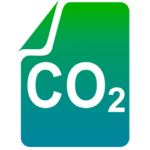
SUBSIDIES AND FINANCING OF ENERGY TRANSITION PROJECTS
For the companies involved, the profitability of climate change projects also needs to be assessed against energy prices and CO₂ quotas. There are many subsidy mechanisms to improve the payback time.
Beyond the easily identifiable national mechanisms, specific aids can be considered according to regional policies, project by project.

Transition mechanisms in France
3 main national subsidy mechanisms
The energy saving certificates (CEE), the heat fund and the guaranteed prices are three subsidy mechanisms proposed at the national level in France. As they cannot be combined, it is important to understand these different solutions in order to be able to build solid dossiers that will enable you to be selected.
- Energy saving certificates are one of the main instruments of the State’s energy management policy.
On the basis of regularly revised standard forms or specific operation files, the energy savings made by individuals, companies or local authorities are “subsidised” by the energy suppliers (the Obligated Parties) according to a mechanism that is updated every three years. These savings are recorded in “cumulative and discounted megawatt-hours” of final energy. Also known as MWh Cumac (MWhc), the unit of account specific to the energy savings certificate scheme corresponds to the quantity of energy saved over the estimated useful life of an item of equipment or a renovation action.
On 1 January 2018, the scheme entered its 4th period of obligation for a further 3 years. It is a market in which the value of the certificate varies: the first three-year plans offered €3 to €4 per MWh cumulated, only €1.5 during the EWC crisis in 2015, up to €8 in 2020. Depending on the market price, the incentive can make operations very profitable, with sometimes exceptionally high amounts per operation (for heat recovery on cooling units or insulation, for example). There are therefore real opportunities not to be missed.
- Managed by ADEME since 2009, the heat fund is intended to support the production of renewable heat (such as solar thermal projects), but also projects to recover waste heat.
Aimed at collective housing, local authorities and businesses, the scheme subsidises studies and investments on the basis of percentages determined by ADEME.
- Guaranteed prices or price complements are mechanisms linked to the production of renewable energy.
For example, these mechanisms subsidise the purchase of surplus green electricity produced by self-consumption photovoltaic panels or a purchase price for electricity produced by a cogeneration plant or a purchase price for biogas injected into the network by a methanisation plant…
For all subsidy mechanisms, Orygeen assists its clients in :
1.
Identify applicable subsidies and eligible projects
2.
Optimise the project in order to maximise the subsidy levers
3.
Prepare the application file
4.
Follow the procedure until the funds are paid out

Third-party financing solutions for energy transition projects
Third-party financing solutions
3 financing solutions are possible.
Energy performance contract (EPC)
This service contract allows a company to benefit from the optimisations generated by all the equipment invested in by a third party company, which is paid on the basis of the service provided. The monthly amount to be paid may vary according to the energy performance achieved.
EPCs involve a major challenge in measuring results. Most contracts are based on the IPMVP (International Performance Measurement and Verification Protocol) methodology and sometimes involve a trusted third party to measure performance.
Operational equipment leases
This contract allows you to benefit from equipment (motor, pump, photovoltaic panel, etc.) in exchange for a rent, with the possibility of buying back the equipment at the end of the contract.
Although very easy to implement, it has the major disadvantage for companies subject to European accounting standards (IFRS) that the debt associated with this operating lease is consolidated. For companies subject to French accounting standards (ANC), this pitfall disappears.
The energy sales system applied to renewable energy
In the context of a corporate PPA (Power Purchase Agreement) or SPA (Steam Purchase Agreement) on site, the company makes space available to produce renewable energy (photovoltaic panels, cogeneration, etc.) and undertakes to buy back the electricity or steam produced during a defined period.
This operation cannot be consolidated under IFRS. Its choice therefore depends above all on the possible taxes associated with the sale of energy which reduce the profitability of the operation.
With the help of its team of financial experts, Orygeen offers its clients optimised financing solutions. Depending on the case, these solutions can be deconsolidated so as not to affect the company’s financial ratios. The invested assets are carried by a financial vehicle (SPV) for the duration of the contract and provide the solution expected by the client within the framework of a CPE or PPA/SPA type contract. This involves :
1.
Defining the financial constraints
2.
Developing the supply service contract
3.
Implementing the solution financed by Orygeen and its partners
4.
Delivering the solution during the contract period






